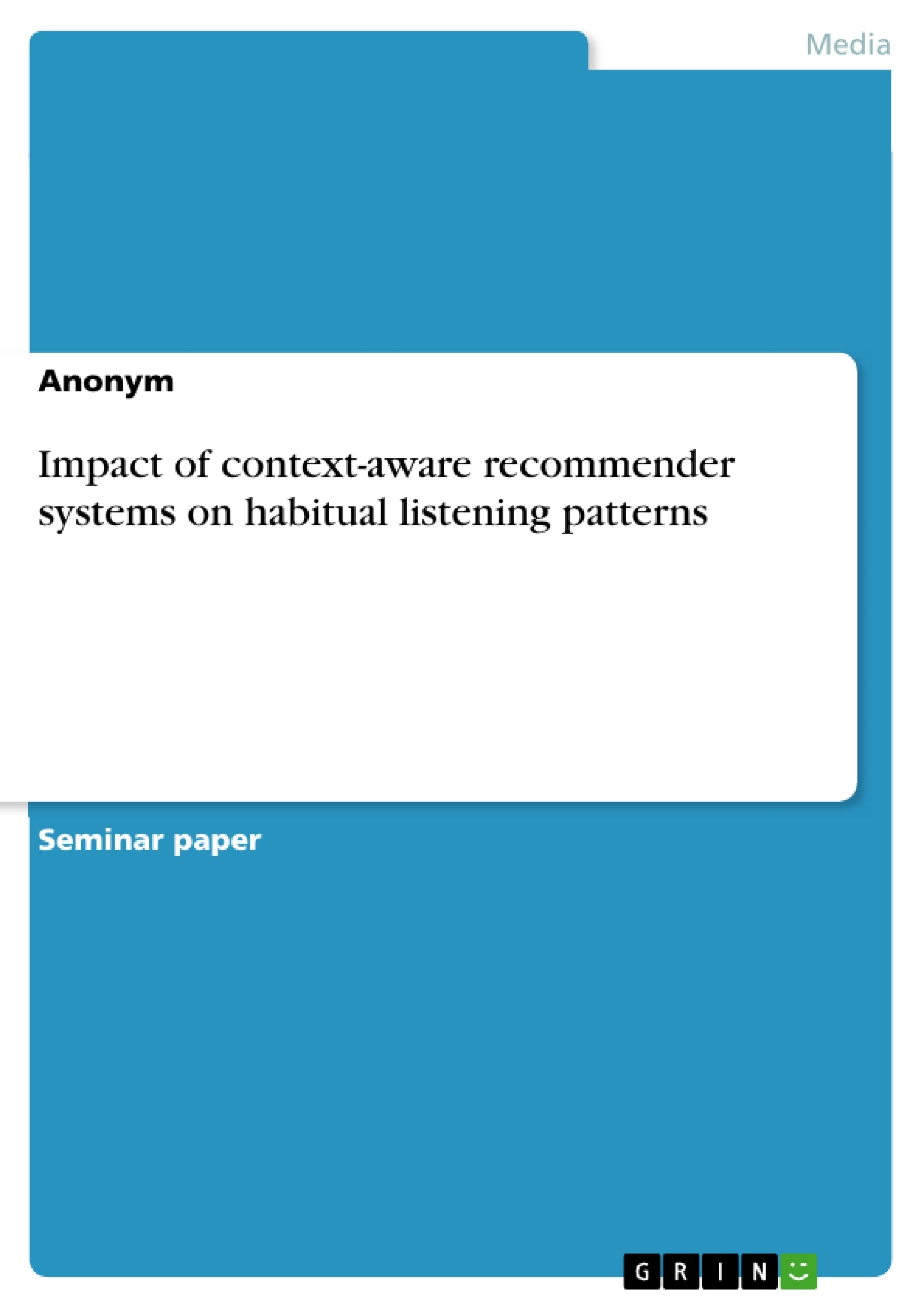With the ubiquitous availability and rapid travelling of information, networked media environments confront consumers with an abundance of information, which they can not handle by themselves. As consequence of that, digital media platforms (such as Spotify) make use of recommender systems, that suggest items based on anticipated user preferences. Thereby, algorithms assist users to navigate huge databases of items. Recommender systems turn out to be one of the most powerful tools to cope with information overload. On the other hand, digital music platforms afford user with new opportunities to add, share, comment or rank items and, thus, facilitate the formation of participatory music communities. However, very little is known about the socio-cultural consequences of computer mediated decision-making processes.
Inhaltsverzeichnis (Table of Contents)
- Introduction
- Historical development of recommender systems
- Collaborative recommender systems
- Content-based recommender systems
- Context-aware recommenders: Exemplified by Spotify
- Impact on listening practices
- Discovering and curating practices
- Mood management
- The performativity of selfhood
- Critical review
- The commodified listener
- Algorithms – the perfect structural listener?
- Physiognomy of listening
- Conclusion
Zielsetzung und Themenschwerpunkte (Objectives and Key Themes)
This study aims to investigate the impact of context-aware music recommender systems on habitual listening patterns, focusing on how these systems influence individual and social encounters with music and how altered listening patterns affect traditional notions of culture and its societal relevance.
- The influence of recommender systems on individual and social encounters with music.
- The impact of altered listening patterns on traditional notions of culture.
- The socio-cultural implications of computer-mediated decision-making processes in music consumption.
- The commodification of music listening through recommender systems.
- The role of algorithms in shaping listening habits and cultural understanding.
Zusammenfassung der Kapitel (Chapter Summaries)
- Introduction: This chapter sets the stage for the study by discussing the growing influence of digital music distribution solutions and the role of recommender systems in navigating information overload. It highlights the lack of research on the socio-cultural consequences of these systems.
- Historical development of recommender systems: This chapter explores the historical evolution of music recommender systems, focusing on collaborative, content-based, and context-aware systems. It uses Spotify's "The Echo Nest" as a case study to exemplify the key features of context-aware recommenders.
- Impact on listening practices: This chapter examines the impact of music recommender systems on users' listening habits, drawing on qualitative studies. It analyzes behavioral patterns related to discovering and curating practices, mood management, and the performativity of selfhood in the context of music listening.
Schlüsselwörter (Keywords)
This study focuses on the key concepts of context-aware recommender systems, music listening habits, cultural impact, digital music platforms, Spotify, The Echo Nest, algorithms, commodification, and socio-cultural implications. It explores the intersection of technology, culture, and individual behavior in the realm of music consumption.
Frequently Asked Questions
How do music recommender systems affect listening habits?
Algorithms help users navigate massive databases but also influence how people discover music, manage their moods, and express their identity.
What is a "context-aware" recommender system?
It is a system, like Spotify’s "The Echo Nest," that suggests music based on anticipated preferences and the user's current situation or environment.
What is the "commodification" of music listening?
It refers to the process where personal listening habits are turned into data points for commercial purposes, potentially reducing culture to a mere commodity.
Are algorithms the "perfect structural listeners"?
The study critically reviews whether algorithmic decision-making can truly understand the socio-cultural depth of music or if it merely mimics patterns.
How do digital platforms facilitate music communities?
Features that allow users to add, share, comment, or rank items help form participatory communities, though the algorithm still mediates these interactions.
- Quote paper
- Anonym (Author), 2017, Impact of context-aware recommender systems on habitual listening patterns, Munich, GRIN Verlag, https://www.hausarbeiten.de/document/381036


